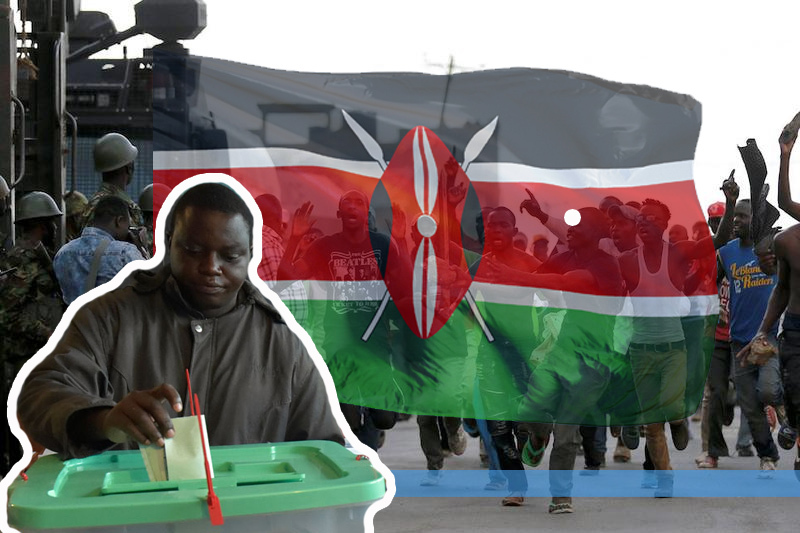

why young kenyans are boycotting the election


Only 40% of the 22 million people registered to vote in Tuesday’s elections are between the ages of 18 and 35. Persons under the age of 35 make up 75% of the country’s population.
Voting next week should be tight. Two of the presidential candidates have been in politics for a long time. Opposition leader Raila Odinga was prime minister between 2008 and 2013. And vice president William Rutow is outgoing government.
Their long political career has bolstered their influence across the country, but has also worked against them among voters who are critical of their track record.
According to a report by the National Cohesion and Integration Commission, public confidence in Kenya’s electoral institution is only 26%. The last elections in 2017 were declared invalid by the Kenyan courts. Uhuru Kenyatta won the rerun, which Odinga refused to run and called for a boycott from his followers. “When Raila did it, it was understood that staying away from the polls was a tactic towards getting issues addressed,” explains Ruzuna Akot.
Commentators point to ingrained beliefs around voting. As they say, they live in a country where civic participation is reduced to voting. Voting is now very extractive, with politicians engaging the population only when they want [they] to vote. The sociologist agrees with this statement and adds – “The messaging around the elections is like, ‘go and vote and go home – and vote peacefully!”
Kenya has some of the most expensive choices in the world. Last year, lawmakers rejected a proposal by the electoral body to limit presidential campaign spending to 4.4 billion shillings. According to the Election Spending Report, many politicians go to the polls expecting financial or social rewards.
The Communications Ministry of Indonesia seeks to develop a public endowment fund, which would strengthen independent journalism across the country…
Radio Free Asia (RFA), a U.S. government-funded news network that broadcasts in nine Asian languages, has virtually fired everyone in…
The Trump government revealed its intent in action to consider layoffs on a grand scale, under which agencies of the…
The Trump administration has launched a sweeping initiative to monitor around 450,000 unaccompanied migrant children who were placed during the…
During the May half-term Gatwick Airport could experience delays because workers from two different groups plan to strike about pension…
A serious injury at a construction site has netted a 49-year-old union worker a $5 million settlement. The attorneys Kenneth…
This website uses cookies.
Read More